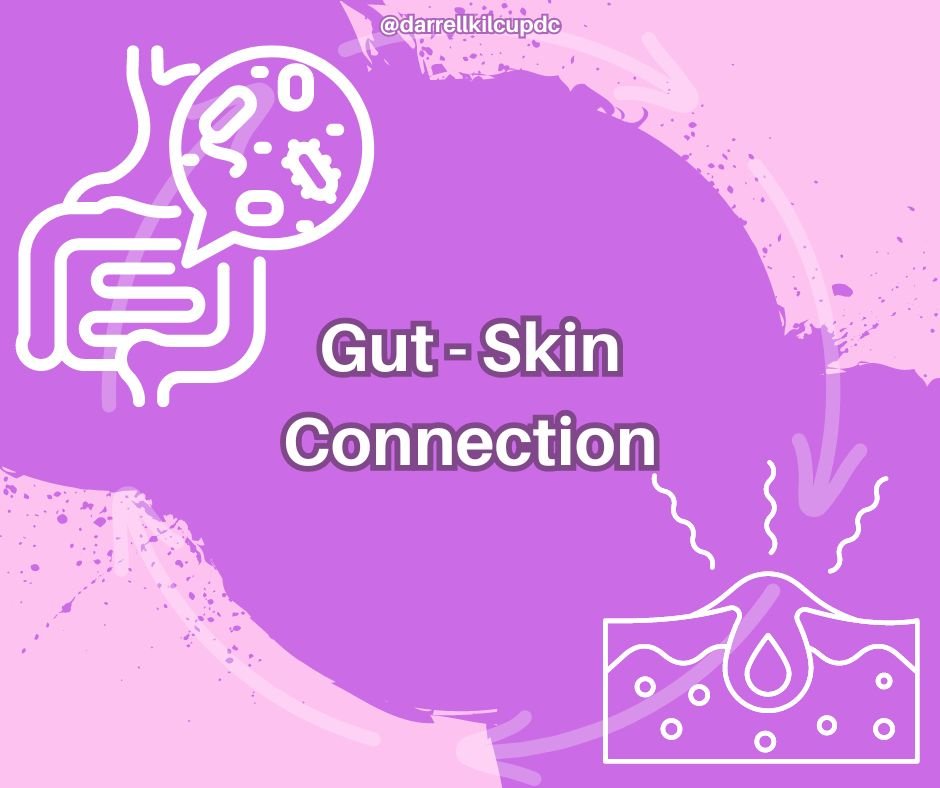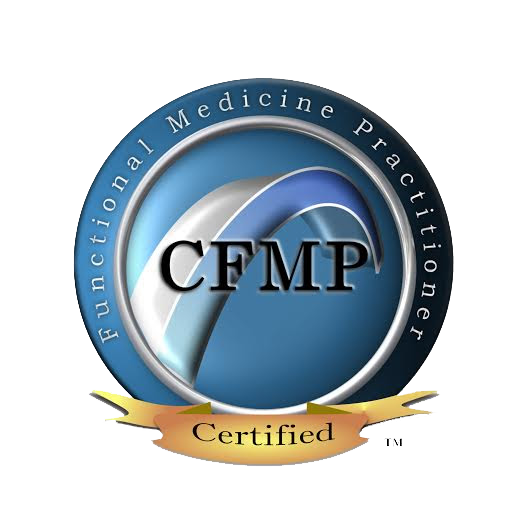
Inflammation and weakened immunity in the gut often cause skin conditions. If left unaddressed, these sensitivities damage the intestinal lining, leading to inflammation that spreads to other organs, including the skin. Testing for food sensitivities and treating gut issues can significantly reduce inflammation and improve skin health. Understanding and addressing the gut-skin connection is crucial for effective skin condition management.
The Beauty of Your Skin
The skin, although often viewed simply as a protective outer layer, is a vital organ. It serves several functions:
- Toxins are eliminated through the skin.
- Protects against environmental elements, microbes, and pathogens.
- Helps retain moisture.
- Regulates body temperature through sweat.
- Enables us to sense our surroundings and perceive heat and touch.
- Plays a role in the immune system, with cells like Langerhans cells aiding in infection defense.
Moreover, the skin continually renews itself, allowing us to address issues within and better the appearance.
7 Ways the Gut-Skin Connection Impacts You
1.) Food Sensitivities Trigger Skin Reactions
Consuming foods that trigger skin reactions can be caused by your body’s immune response. Delayed reactions, linked to IgG responses, cause chronic issues like fatigue or digestive problems. These sensitivities inflame the gut and contribute to skin conditions over time. We can test for food sensitivities with Functional Medicine testing and create an eating plan to avoid foods your body reacts to. This can then greatly impact how you feel on the daily and how your skin looks.
2.) Gut Inflammation Leads to Eczema
Prolonged gut inflammation often results in eczema, characterized by chronic skin inflammation, redness, and itching. Food sensitivities usually underlie this gut inflammation. Environmental factors, like phthalates, mold, heavy metals, and allergens, can exacerbate symptoms. Avoiding processed foods and allergens helps manage and reduce inflammation in eczema sufferers. Furthermore, we can test for gut inflammation, food sensitivities, and environmental factors with Functional Medicine to see what your body is reacting to. Read More: Red Light for Eczema
3.) Eczema’s Psychological Impact
Eczema causes not only physical discomfort but also significant psychological effects. Adults with eczema face a higher risk of anxiety and depression and are more likely to experience suicidal ideation. People with eczema are up to 44% more likely to exhibit suicidal ideation, and 36% more likely to attempt suicide. Chronic itching leads to skin thickening and infections, disrupting sleep and impacting overall quality of life. Adults with eczema have a two-and-a-half to three-fold higher risk for anxiety or depression.
There are options for treatment! To treat both the physical and mental aspects of this condition, I would recommend Functional Medicine testing, Hyperbaric Oxygen Therapy, Red Light Therapy, or a combination of the three. All these treatments can not only address your skin’s appearance and help how you feel psychologically, but can also work on the root causes.
4.) Psoriasis and Autoimmune Response
Psoriasis, an autoimmune disorder linked to gut imbalance, leads to systemic inflammation. The immune system mistakenly attacks skin cells, causing inflammatory skin lesions. This chronic inflammation also results in fatigue, joint pain, and gastrointestinal issues, highlighting the need for comprehensive management. One cause of psoriasis can be Leaky Gut, where the lining of the gut becomes damaged and causes a host of problems. We can test for leaky gut and other gut-related issues to see if this is happening to you, and we can also provide treatment for these issues.
5.) Chronic Inflammation and Psoriatic Arthritis
Chronic inflammation, a key factor in psoriasis, persists for extended periods and increases the risk of developing psoriatic arthritis. This painful condition inflames joints and tendons, underscoring the importance of managing systemic inflammation to prevent further complications.
6.) Stress and Anxiety Exacerbate Skin Conditions
Stress and anxiety significantly exacerbate skin conditions like eczema and psoriasis. The unpredictability of flare-ups and the limited effectiveness of treatments contribute to these psychological symptoms. The unpredictability of eczema flares and the limited ability of currently available treatments to effectively alleviate itch and afford long-term disease control correlates with symptoms of anxiety and/or depression.
This creates a vicious cycle where stress worsens skin issues, and skin problems increase stress. Gut-dysbiosis can lead to anxiety, which makes it important to test your probiotic levels, as well as check for bacterial overgrowths. Candida overgrowth, a fungal infection, can cause acne and anxiety, but that is just one area where you may be experiencing overgrowth. There is also Small Intestine Bacterial Overgrowth (SIBO), parasites, and so many other things that can be messed up.
Sounds like a lot, right? Well, with a few functional medicine tests we can find out who the culprits are and treat you in order to get rid of them.
7.) Missing Key Nutrients
If you are missing key nutrients, you are not giving your body what it needs to create healthy skin. Vitamins like A, B, C, D, E, & K all are needed for the appearance of healthy skin – plus you’ll feel so much better! Your body needs all of its essential building blocks to allow you to look and feel your best. There are also key minerals like zinc, copper, calcium, and magnesium that your body needs to function properly.
These deficiencies can be found with blood work and fixed with supplementation or diet changes.
Find Out What’s Causing the Problem: Testing
Fixing skin issues starts with addressing gut health through thorough testing. Functional Medicine looks at the root causes of issues like acne, eczema, psoriasis, and rosacea. Then, from there we can treat those issues and fix the skin from the inside out. Early detection and management can help prevent and reverse skin issues and autoimmune conditions.
Food Sensitivities
Food sensitivities can trigger inflammation in the body, often manifesting as skin problems like acne, eczema, or rosacea. Common culprits include dairy, gluten, and processed foods, which may aggravate gut health and trigger immune responses. Identifying and eliminating food sensitivities through testing and a personalized elimination diet can help reduce inflammation and improve skin health over time.
Microbiome Dysbiosis
An imbalanced gut microbiome, known as dysbiosis, can contribute to various skin issues. When harmful bacteria outnumber the beneficial ones, it disrupts the gut-skin axis, potentially leading to conditions like psoriasis or eczema. Restoring a healthy balance of gut flora through probiotics, prebiotics, and dietary adjustments can strengthen the immune system and promote clearer, healthier skin.
Messed Up Hormones
Hormonal imbalances are a common root cause of skin issues, especially in conditions like acne or eczema. Fluctuations in hormones such as estrogen, testosterone, and cortisol can cause excess oil production, inflammation, and sensitivity. Addressing hormonal imbalances through proper testing and lifestyle changes—like diet, stress management, and supplements—can help regulate the skin and reduce flare-ups.
Fix the Problem: Treatment Options
Preventing these skin diseases and potential autoimmune disorders involves addressing gut health through thorough testing. Our office offers comprehensive gut tests to assess gut health, including leaky gut, and identify food and environmental allergies that may contribute to inflammation. Early detection and management of these factors can help prevent the development or progression of skin diseases and autoimmune conditions.
Functional Medicine – Testing and Supplements
Functional Medicine emphasizes the use of targeted supplements to support gut healing and skin health. Supplements like probiotics, omega-3 fatty acids, zinc, and vitamin D can help reduce inflammation, support the immune system, and repair the gut lining. Personalized supplementation plans based on specific nutrient deficiencies or hormonal imbalances can provide effective, long-term relief for skin conditions like acne, eczema, and psoriasis.
Red Light Therapy
Red light therapy is a non-invasive treatment option that has been shown to reduce inflammation, boost collagen production, and accelerate wound healing. It is particularly beneficial for treating acne, rosacea, and psoriasis by stimulating cellular repair and reducing redness. Incorporating red light therapy into your treatment plan can help soothe inflamed skin and promote overall healing.
Hyperbaric Oxygen Therapy
Hyperbaric oxygen therapy (HBOT) involves breathing pure oxygen in a pressurized environment to accelerate healing. For skin conditions, HBOT can reduce inflammation, improve circulation, and enhance collagen production, making it an effective treatment for chronic skin conditions like eczema, psoriasis, and slow-healing wounds. The increased oxygen levels help the body repair damaged tissues more efficiently and boost immune function. Read More on the Benefits of HBOT
Start Today!
If you want help healing the relationship between your gut and you skin, please fill out the Functional Medicine new patient form below. That is the best place to start so that you can get the answers to what is causing your symptoms and then get started on fixing them. We can help patients in person or virtually from all over the world.
Need Help in Phoenix, Arizona?
If you are located in Phoenix, Arizona, we can get started with Hyperbaric Oxygen Therapy and Red Light Therapy to help you with skin issues and their root causes. Call our office for more information or any questions you have – we are happy to help!



